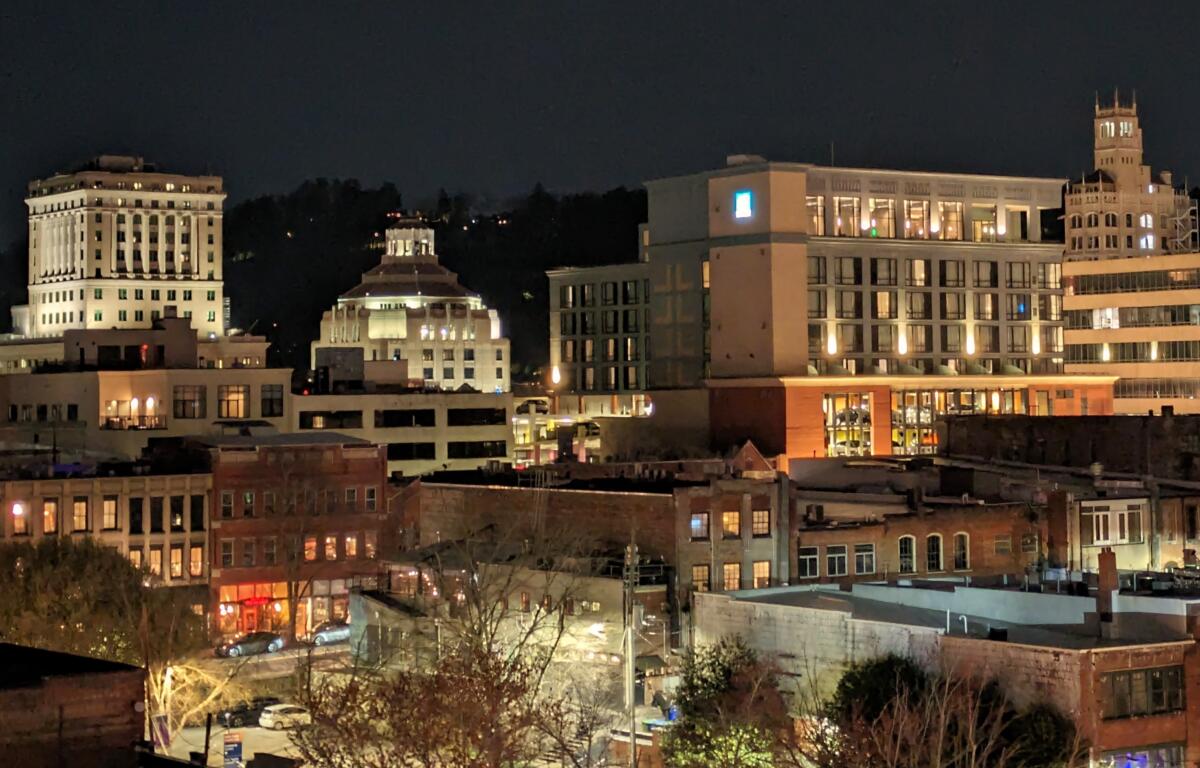ASHEVILLE, N.C. (828newsNOW) — Asheville is moving closer to creating a downtown Business Improvement District (BID) for enhanced safety and cleanliness efforts, but unsettled questions remain about who would control its board and spending decisions.
Local business leaders have expressed enthusiasm for creation of a BID, a special property tax district that would collect new revenue in a limited downtown zone for priorities decided by a self-governing board. After surveys by the Asheville Downtown Association and stakeholder meetings, backers have identified public safety and hospitality, and downtown cleanliness, as their top priorities.
Based on current property valuations, they believe such a district could raise $1.25 million in annual assessments. If approved, properties within the downtown boundaries would be assessed at 0.0919 per $100 of taxable value. For example, a property with a taxable value of $500,000 would have an annual BID assessment of $459.50, according to a report presented to the Asheville City Council on Tuesday night.
A preliminary budget calls for $700,000 to be used for safety & hospitality services, including the hiring of civilian “ambassadors” who would engage with businesses and the public, report issues needing attention to the proper authorities, and generally bring new sets of eyes and ears to the downtown. The report includes “engaging with members of the unhoused population” as part of the description.
The budget also envisions spending $300,000 a year on enhanced cleaning services, with $150 for management and administration, and a $100,000 contingency fund.
But who sets those priorities is an unsettled question.
By state statute, a BID must be defined and authorized by the City Council, but after its creation it would be governed by an independent board.
At Tuesday night’s meeting, several City Council members expressed support for creating such a special district, saying Asheville is the largest city in North Carolina that has not yet done so.
“I almost feel like Asheville is a little behind the times on this sort of model,” council member Maggie Ullman said.
“I’m thrilled it’s coming to us…but we have to get it right,” council member Sage Turner said.
She said a Business Improvement District board could be more “nimble” in addressing issues affecting the downtown. However, she and others questioned the proposed make-up of a 14-member BID board.
Under the current plan, half the seats would be reserved for commercial property owners: three “major property owners” with property values greater than $4 million; two “large property owners” with taxable values between $1.5 million and $4 million; and two “small property owners” with commercial properties valued below $1.5 million.
The rest of the proposed board would include: two residential homeowners; one residential tenant; one retail tenant; one food and beverage tenant; one office tenant, and one at-large member.
Under that scenario, those with the most wealth would have the most control, Turner said.
“How about a non-profit?” council member S. Antanette Mosley asked.
Council member Kim Roney expressed concerns about “another unelected board overseeing tax dollars.” She also questioned whether the “ambassadors” would have the right training to deal with daily crises that involve mental health issues, homelessness and other serious issues.
The next steps for a proposed downtown Business Improvement District include a formal public hearing before the City Council, tentatively scheduled for April 23. The council’s first vote could happen on May 14, with a second vote on June 11.


